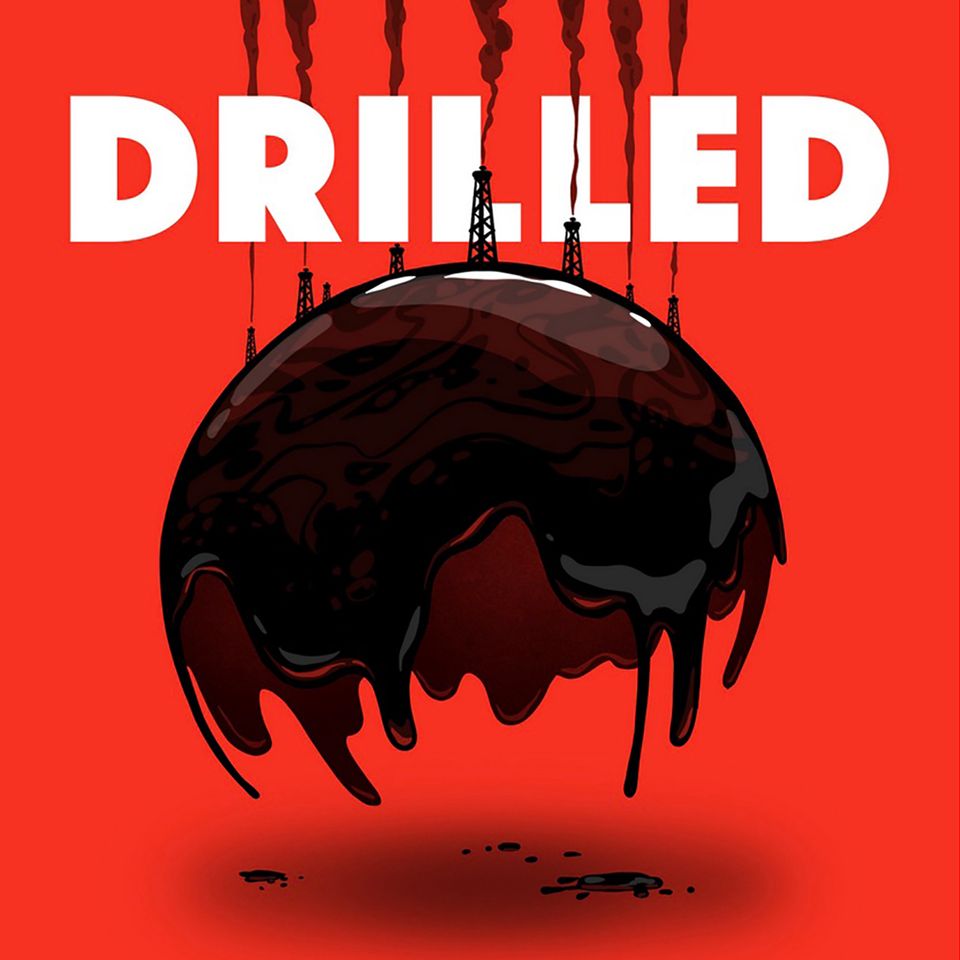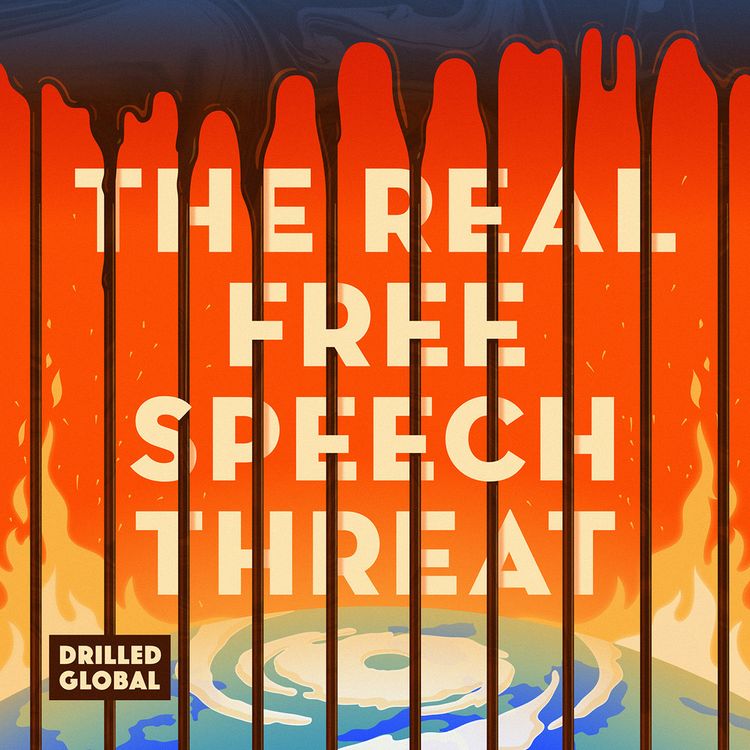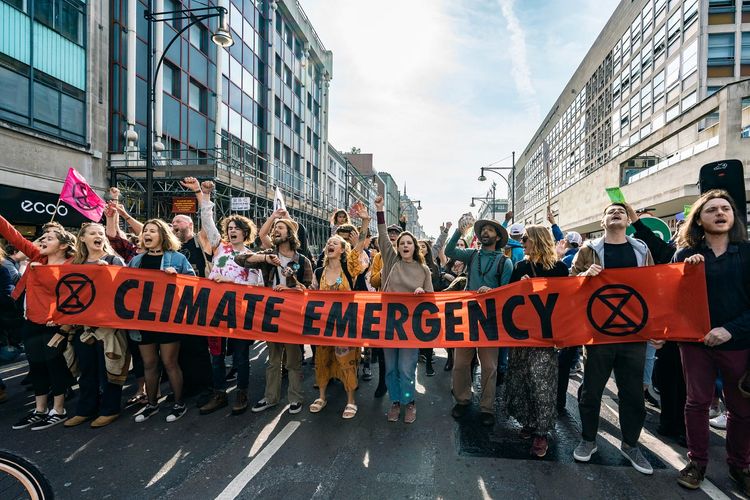Podcast Episode: RAGA Joins the Anti-ESG Fray

Thank you for being a paid supporter of Drilled! Here is your ad-free podcast episode and transcript.
Transcript
We've talked before on this show about the growing backlash against taking environmental, social, and governance or E S G factors into consideration when it comes to investing. The watchdog group documented first revealed last year that state treasurers were getting in on the action, kicking "woke" investment firms like BlackRock out of their states.
Back then, I wondered when the attorney's general would show up to join the fray, and now sure enough, they are here. The Republican Attorney's General Association, RAGA, our old favorite, has come to play in the anti E S G space. But first, a quick reminder, why all this upset about E S G all of a sudden in the first place?
Good question. For a really long time, oil companies actually kind of loved E S G. It was all very loose and self-reported, and it gave them a way to unlock so-called green capital.
But in 2021, the Securities and Exchange Commission, the s e c, looked around and went, huh? There are all these different S EEG ratings, and some of them seem a little scammy, and no one knows what these disclosures even really mean. These are the kinds of things. It's our job to clean up. So we are going to provide formal guidance on climate risk disclosure. And that is when you start to see corporate interests, fossil fuel companies and right wing politicians lose their minds over E S G because all of a sudden they couldn't just write whatever they wanted to in a report.
They might have to actually disclose what their real climate risks are. Here is Jesse Coleman with documented.
[00:02:04] Jesse Coleman, Documented: I think that a lot of this, both the legislative side, this legal strategy, the strategy of using state treasurers to pressure asset managers and to attack climate disclosure, all of this. Is really mostly aimed at S E C Scope three emissions disclosure requirements coming, you know, supposedly coming soon in the next couple of months even .
[00:02:30] Amy Westervelt: wait, sorry, sorry. I'm gonna pause To define scope three. That means how your product's actually being used, not how you're making. It, which is a big deal for especially, heavy polluting industries like oil and gas companies, for example.
[00:02:47] Jesse Coleman, Documented: Yeah. Yeah. It's a really big deal, you know? Whereas E S G having non-standardized E S G disclosure is no big deal to a major company. The s e c coming and saying how much. Carbon emissions are you really responsible for not just, you know, what you're claiming you're responsible for, but if you're an oil company, for example, how much carbon are you actually putting in the atmosphere from everything that you've gotten from underground?
What is your real impact? And that is a really big deal. It's probably one of the biggest climate policy issues in play right now. So, in my opinion, a lot of this anti E S G stuff, which doesn't make a lot of sense on its face. You know, these state bills that have passed in some states and been introduced in a ton of states, the actual thing that those bills are gonna do, they're not gonna have a really big impact.
And sort of this antitrust stuff is very similar in the sense that, you know, the claims are kind of weak and it's hard to say exactly what the impact is gonna be specifically, but at the same time it's building up all of this pressure, and it's building up all of this political inertia that is all aimed at opposing disclosing climate emissions, and that's what this s e c rule would do when it comes out is that it would, it would require publicly traded companies to disclose those emissions. So, you know, in my opinion, that's the real goal, is to keep that from happening.
[00:04:21] Amy: You may have heard Jesse mention there the words antitrust. That is where the Republican Attorney's General Association comes into the picture. Back in June, 2021, a guy named Jason Isaac, who spearheads the Texas Public Policy Foundation's work on energy, went to a meeting of the American Legislative Exchange Council, went to a meeting of the American Legislative Exchange Council.
Alec with an idea for a legal strategy that he thought could take e S G down documented shared audio from that meeting with us.
[00:04:59] Jason Isaac: Yeah, so earlier, a couple months ago, our state affairs. Committee voted nine to nothing. So broad bipartisan support. Every single member voted in support to give, uh, the committee subpoena authority. So they have sent out letters to these financial institutions to get some paper documents to find out where this collusion is happening.
Uh, we anticipate truckloads of documents being delivered, and so we look forward to the Texas Public Policy Foundation to going through those meticulously. Because we believe that there is, we actually partner with Sea Boy and Gray Boyd and Gray Associates Law Firm out of uh, Washington DC corporate collusion liability risk for the ESG agenda to charge higher fees and rig the market. We believe that there's anti-trust violations. This is really kind of geared towards our attorneys general to allay the, the, the foundation for antitrust violations on this corporate collusion.
Find out the connections with the Glasgow Financial Alliance for net zero. Which has over a, I think a hundred trillion dollars under managed assets in their, in their cartel. That's. Colluding for this two degrees, this net zero, this Paris Accord.
It's all rooted in decarbonization, which is net zero. So I hope our committee gets a a ton of paper back from these large financial institutions and they get hammered. In the courts, in our attorneys general around the country, file antitrust violations.
[00:06:27] Amy: So yeah, cartels, colluding for decarbonization. What the hell is he talking about here? We're gonna try to answer that question right after this quick break.
And we're back. So after COP 26 in Glasgow, insurers and asset managers both formed groups focused on E S G. In both cases, these firms were saying, look, all sorts of environmental and social factors can impact our bottom line, and we would like to know what those risks might be. So we can factor that into our decision making around what to ensure and what to invest in.
But according to Isaac, these firms talking to each other, issuing joint statements about what kind of information they'd like to see from companies that's colluding to rig the market. In the wake of that 2021 Alec meeting, you heard Isaac talking at before. Not only did Texas continue with the investigation, Isaac mentioned, but Arizona Attorney General Markovic opened an investigation into E S G investing.
And Ragga coordinated a letter to various asset managers and politicians with more than a dozen attorneys general signed on, stating their concern that E S G investing might actually be an antitrust violation. Here's Jesse Coleman again
[00:08:05] Jesse Coleman, Documented: We started to see, you know, some of the. Bright lights of the Republican Attorney's General Association, uh, file, um, various kinds of legal attacks on E S G issues, whether that's, you know, going directly after asset managers and asking them questions about their net zero commitments, or that's, you know, going directly after ratings agencies and, you know, saying that you're boycotting fossil fuels.
[00:08:33] Amy Westervelt: And they seem to have coalesced around this idea of painting e s G as some sort of like corporate collusion, um, you know, building an antitrust case. Can you explain what, what the thinking is there? What they're trying to, you know, prove.
[00:08:51] Jesse Coleman, Documented: The allegation is that A lot of large asset managers get together in a shadowy cabal and they plan to collude to reduce carbon emissions. The reason that these groups are ca, are alleging antitrust violations is that antitrust violations are very scary to companies.
If a jury finds you guilty of an antitrust violation, it's very expensive and it's a pretty hard bar to meet. And most experts are saying that the antitrust allegations that are coming from, these people that are opposing climate policy, you know, they probably don't have a leg to stand on, but, a lot like slap suits and other kinds of legal tools that are used to silence people.
Just defending against an antitrust allegation is very, very expensive. So, you know, you see companies Really backing away from participation in these kind of global groups that are trying to address climate emissions, and trying to address, investment in the fossil fuel industry by large asset managers.
[00:10:04] Amy: In 2022, Alec once again held a meeting with a session on how to handle E S G at the state level, and again, the antitrust strategy was front and center. This time, Isaac was in the room cheering on new proponents of the strategy, including will held with consumer. Including Will Hild with Consumers Research, which is funded by former Federalist Society President Leonard Leo Paul Watkins, who used to work in the Arizona Attorney General's office and now runs an outfit called Fusion Law Advising on these sorts of strategies.
Andy Puer, former c e o of the food conglomerate that is home to Wendy's and Hardee's and Catherine Gonzalez with the Heritage Foundation. Puer kicked things off by comparing e s G investors to, not kidding here, the Nazis
[00:11:07] Andy Puzder: I want to tell you, e ESG investing is socialism in chief's clothing. And this is, this is the challenge of your generation. My father's Generation's challenge was the Nazis, who by the way, were of course, uh, very proud socialists. Uh, the challenge of my generation was the communist who were of course, very committed socialists.
The challenge of your generation is E es g investing, and it's more insidious than communism or the Nazis. It's more insidious, it's more devious. You almost have to respect how comprehensive this horrible thing they're doing is. So, e s G, you know, environmental, social, and governance. Like how bad could that be?
Right? It sounds so innocuous, but it's a ruse. It's a ruse to conceal the fact that it's a direct threat to our founding principles. It's a threat through our democracy.
[00:11:57] Amy: Hild and Watkins kept it focused on the litigation strategy.
[00:12:03] Will Hild: But it's to be clear, Paul, this is, this consortium, is these companies coordinating their activities. They get in rooms and they talk about they're gonna set a policy across the market. Now, it's been a while since I was in law school, but when I was there, that was antitrust 1 0 1.
[00:12:18] Paul Watkins: And then that's its way you see US senators saying this is potentially criminal antitrust liability. You see, uh, ag saying that they're going to investigate as, as, uh, as an example.
[00:12:29] Amy: And again, I have yet to speak with a single legal expert who thinks that this strategy could actually win in court. But like we said before, that is not necessarily the point.
It's already having a chilling effect on investment firms and insurance companies in these net zero groups. And now that Republicans have control of the house, it's the focus of a series of oversight committee hearings too. The first one happened, the first one happened back in May, and featured the Attorney's General of Utah and Alabama as witnesses.
Here's Sean Reyes, attorney General of Utah
[00:13:13] AG Reyes: ever since the signing of the Paris Agreement, there's been an open conspiracy to bypass Congress using the power of horizontal agreements by key players in our financial system.
Some of these groups are Climate Action 100, the Glasgow Alliance for Net Zero, which include the largest asset managers, banks, and insurance companies globally. These horizontal organizations seek to use their collective market power over tens of trillions in assets to force burdensome changes on American companies.
[00:13:37] Amy: The Democrats witness during this hearing, Illinois State Treasurer Michael Frericks gave a great and completely non climate related example of where E S G can safeguard profits.
[00:13:50] Michael Frericks: The more data we as investors have, the better informed our decisions are when selecting investments over the long term. ESG is about looking at a wider range of risks and value opportunities that have, that can have a material financial impact on investment performance. For example, if you're investing in a pharmaceutical company, it's thinking about whether that company has exposure to massive lawsuits because of its role in the opioid epidemic.
Our approach is to integrate material E s G factors into investment decisions along with many other considerations. We are not ignoring traditional financial factors like profitability and credit worthiness. We are integrating more data into our decisions to give us a better idea of risk and growth prospects.
[00:14:38] Amy: Frericks also pointed out that limiting the information investors can get about the companies they're investing in is the exact opposite of a free market idea.
[00:14:50] Michael Frericks: This pushback is anti-free market, an anti investor. It is misleading and it is harmful. It harms retirement savers, pensioners, working people, businesses, and it harms America. This coordinated campaign is focused on E S G investing. Most people don't know what e ESG is. ESG is data. ESG is simply additional information that investment professionals use to assess risk and return prospects.
It is about value, not about values. In order to maximize returns, an investor must be able to manage and mitigate risk. The more data we as investors have, the better informed our decisions are when selecting investments over the long term. ESG is about looking at a wider range of risks and value opportunities that could have a material financial impact on investment performance.
[00:15:43] Amy: Last week, the House Oversight Committee held its second hearing on this subject, calling on none other than Jason Isaac himself to testify
[00:15:54] Jason Isaac: I'm Jason Isaac. I'm the director of Life powered, uh, national Initiative of the Texas Public Policy Foundation to raise America's Energy iq. And I live a high carbon lifestyle and I think the rest of the world should too. I refer to the E s G agenda as the China e s g agenda. It does very little to help Americans. It does everything to help the Chinese Communist Party and again, making energy expensive, scarce, and government controlled. This body, the United States Congress has not ratified the Paris Treaty. It is not the law of the land here in the United States. But to force an American entrepreneur to admit that his company will comply with that is, is just mind blowing to me.
[00:16:36] Amy: whether the committee will hold a third hearing remains to be seen. I'm not sure the anti ESG bench of experts rolls that deep. Plus, while these ideas might get folks at an ALEC meeting riled up, they're remarkably unpopular with American voters, including the majority of Republican voters.
New Mexico rep, Melanie Stansbury made that point at last week's hearing.
[00:17:05] Rep Melanie Stansbury: What I find particularly strange about this conversation is that over 63% of American voters actually oppose, directly oppose, uh, any kind of government interference in investing strategies. And the vast majority of Republicans oppose it as well. And you know, when you look at the bigger picture, when you look at what the American people are actually asking Congress to do, asking businesses in the private sector to do, almost 70% of Americans are in support of actions to address climate change, to transition to a clean energy economy.
[00:17:46] Amy: Whether the SEC will be swayed by the show, whether the SEC will be swayed by the antitrust argument remains to be seen. That's it for this week. Thanks for listening, and we'll see you next time.





